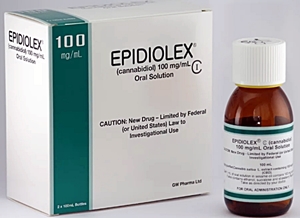Wednesday marked the 100th day since Korea legalized the import of medical marijuana for self-treatment purposes on March 12.

However, Korean Cannabinoid Association (KCA), the non-profit group pushing for the legalization of medical marijuana, says the amendment has yet to benefit patients because of the government’s strictly limited permission and resultant high prices.
Under the revised laws, patients with a rare or intractable disease must submit to the Ministry of Food and Drug Safety an application to recognize them as eligible patients and a medical certificate, which indicates the name of the treatment, and dosage per one time, the number of doses per day, and the total number of days for medication. Also required are medical records and a medical statement that there are no other alternative treatments in Korea.
After the ministry’s review, patients can get access to hemp-based medicines, limited to prescription drugs made by certain foreign pharmaceutical companies licensed in the U.S. and Europe, only through the Korea Orphan & Essential Drug Center (KODC). The four medicines prescribed by the KODC are Sativex (tetrahydrocannabinol, cannabidiol), Epidiolex, Marinol (dronabinol), and Canemes (nabilone).
“A 100ml-capacity cannabidiol oral solution prescribed by KODC costs 1.5 million won ($1,358) as it is uninsured,” KCA said. “Because the national insurance plan does not cover it, the burden of the treatment lies fully on the patient and their families.”
The group says that the ministry can quickly solve this problem by following the global trends on legally allowing CBD oil, a health supplement that uses CBD extracts, more commonly known as medical marijuana.
“The cannabidiol oral solution supplied by the center contains 100 mg of CBD per a milliliter, as the KODC prescribes 100ml vials the treatment contains 10,000 mg of CBD per bottle,” KCA said. “Although the CBD amount is twice that of what the patients and families have been purchasing, however, it is 800 percent more expensive when it comes to the price of the drug.”
The cannabidiol oral solution, which has the same ingredients as the whole herb, can costs up to about 36 million won annually, it added.
The association stressed the need to allow domestic production and preparation of the drug as prescriptions will become more accessible and lower costs.
Despite the claims made by the KCA, the ministry is unlikely to change its position and legalize CBD treatments except for the four, anytime soon. The government will continue to prohibit imports and the use of unauthorized food containing marijuana, hemp oil, and cannabis extracts.
The ministry noted in the past that health supplements are not a treatment and that for the supplement to become a treatment, it has to go through sufficient research such as in-vivo and in-veto studies, and clinical trials.
Lowering the price of the treatments may also be difficult as the four drugs prescribed by the KODC are drugs approved by foreign health regulatory agencies, and the treatments are also expensive elsewhere.
In the U.S., a 100ml bottle of Epidiolex costs $1,235, and a bottle that contains 60 capsules of 10 mg Marinol oral capsule costs $2,622.

